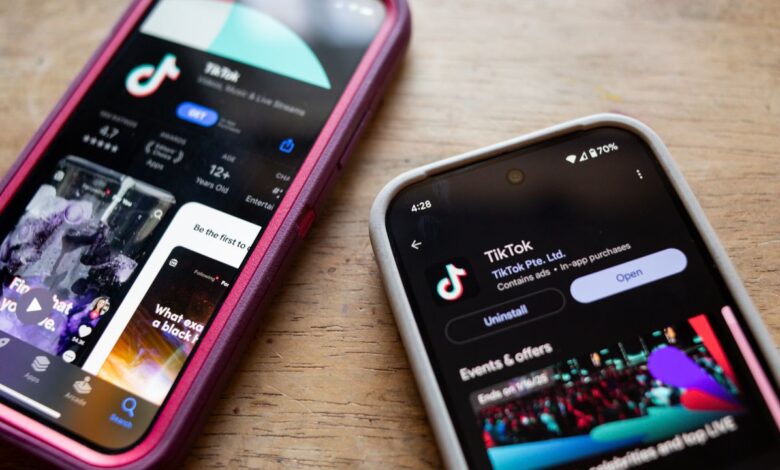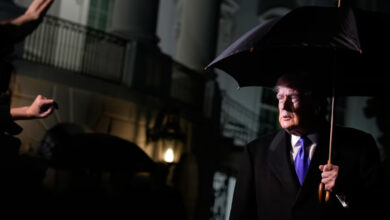
TikTok’s fate in the United States is now in the hands of the Supreme Court. And things are not looking good for the app.
The Supreme Court on Friday heard oral arguments over the law that could ban TikTok in the United States. The law, signed by President Joe Biden in April, requires TikTok to be sold off from its China-based parent company, ByteDance, or face a US ban.
The hearing did not seem to go well for TikTok, making it more likely than ever that the ban will go into effect starting on January 19. Most of the justices appeared likely to uphold the law, lobbing tough questions at lawyers for TikTok and its users about the relevance of their argument that the law violates the First Amendment.
There are a lot of lingering questions about how the ban would work in practice because there’s no precedent for the US government blocking a major social media platform. And much of how the government plans to enforce it remains unclear.
Even TikTok attorney Noel Francisco seemed uncertain about how exactly a ban would go down. “On January 19, as I understand it, we shut down,” he said.
Beyond being unavailable in the app stores, “what the act says is that all of the other types of service providers can’t provide service either,” Francisco said. “So essentially what they’re going to say is that, I think, ‘we’re not going to be providing the services necessary to have you see it.’ So it’s essentially going to stop operating. I think that’s the consequence of this law.”
TikTok itself said in its emergency filing to the Supreme Court that if the court doesn’t block the law, it “will take effect on January 19, 2025, shutting down TikTok for its more than 170 million monthly American users.”
But some things are clear, including the fact that TikTok won’t suddenly disappear from existing users’ phones.
Here’s what we know about how a ban would work.
Removed from app stores
Technically, TikTok could take its ball and go home, blocking access to the app for American users itself, as a way of rebuking the US government and strengthening its bargaining position with the support of millions of newly irate people, bereft of their beloved TikTok. But given how hard it’s fought to avoid a ban, it’s more likely the US government will have to act to enforce the law.
It is widely expected that the US government will force app store operators, like Google and Apple, to remove TikTok from their platforms.
That would mean new users won’t be able to download it. TikTok’s existing American users could still use the app on their phones, but they won’t be able to update it via the app stores, meaning the company won’t be able to fix bugs or security holes. And either of those can add up, eventually making the app difficult — if not impossible — to use.
“Potentially, vulnerabilities will become known in the app, and hackers will take advantage of those vulnerabilities to compromise your account or your device,” Eva Galperin, director of cybersecurity at the Electronic Frontier Foundation, told CNN’s Terms of Service podcast.
.Still, it could be weeks or months before existing users see their experience on the app degrade.
The government could also force American internet service providers (ISPs), which provide access to the internet and the websites on them, to block TikTok, making it impossible to access the web version of the platform. But that approach would be complicated, Galperin said, because there are many more ISPs than app stores.
Could you get around a ban?
Regardless of the precise route the government takes to block TikTok, there will almost certainly be ways around it, for example, by using a virtual private network, or VPN. A VPN is a program anyone can download that can hide location data and make it appear as though the user is accessing the internet from a different country.
“Many other countries have blocked social media apps and websites in the past using a variety of different methods, with a very wide range of results and levels of effectiveness,” Galperin said. “In Turkey, for example, a lot of social media sites have been blocked for years, and having a VPN that gets around that censorship is something that nearly every single person in Turkey does.”
Even if the ban does go into effect, it’s not necessarily permanent. ByteDance would still have the option to sell the platform to a non-Chinese owner to restore access for American users.
And there are willing buyers. A group created by billionaire Frank McCourt and backed by Shark Tank-famous investor Kevin O’Leary said Thursday they made a formal bid to ByteDance to acquire TikTok’s US assets, although the company has repeatedly said the app is not for sale.
“When push comes to shove and these restrictions take effect, I think it will fundamentally change the landscape with respect to what ByteDance is willing to consider,” Solicitor General Elizabeth Prelogar, who argued for the government, told the Supreme Court Friday. “It might be just the jolt that Congress expected the company would need to actually move forward with the divestiture process.”
What about Trump?
President-elect Donald Trump’s promises to save TikTok have also added uncertainty to how a ban would unfold.
Ahead of Friday’s Supreme Court hearing, Trump filed a brief urging the court to temporarily pause the ban’s implementation — currently set to begin one day before his inauguration — to give him time, as president, to negotiate a sale of TikTok.
Legal experts have also suggested that Trump could simply choose not to enforce the law and signal to Apple and Google that they won’t be fined for continuing to host the app on their platforms.
“It is possible that come January 20th, 21st, 22nd, we might be in a different world,” Francisco, TikTok’s attorney, said Friday, referencing the change in administration.
It’s not clear, however, that those companies would be willing to violate the letter of the law, even with an assurance from Trump.
“I am a little concerned that a suggestion that the president-elect or anyone else would not enforce the law, when a law is in effect and is prohibitive of certain action, that a company would choose to ignore enforcement on any assurance, other than a change in that law,” liberal–leaning Justice Sonia Sotomayor said during the hearing. “Whatever the new president does, doesn’t change that reality for these companies.”




